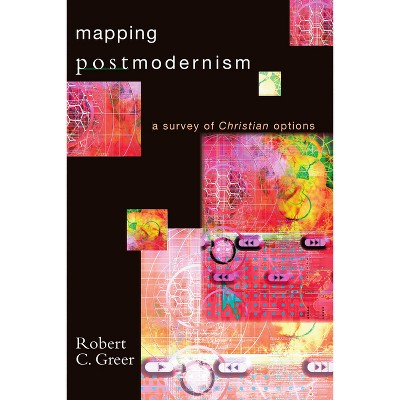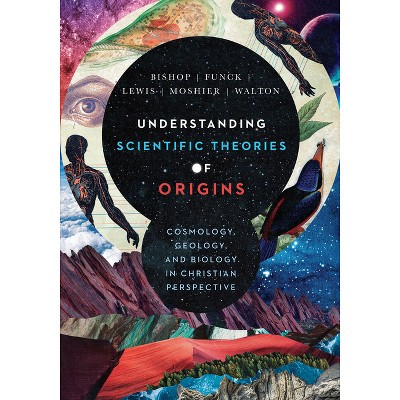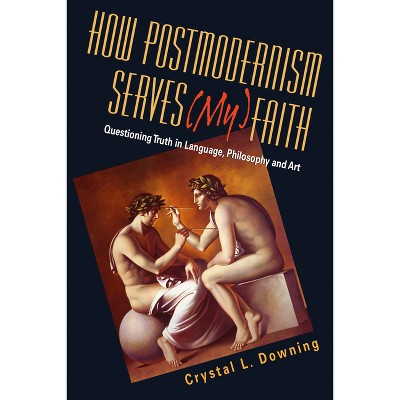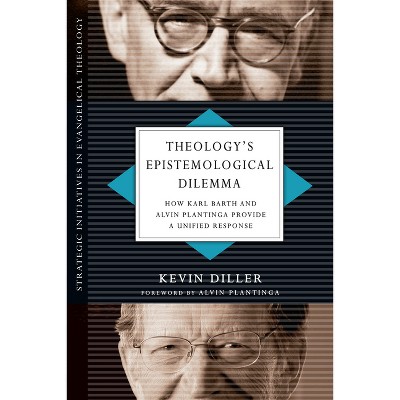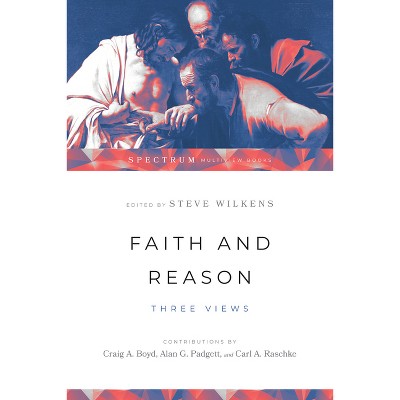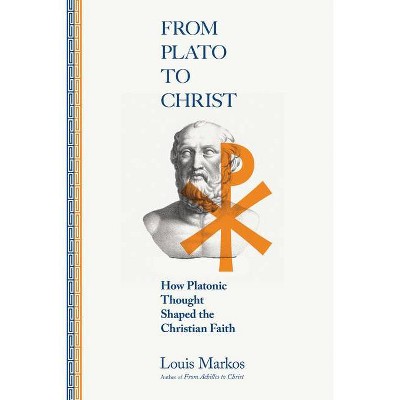About this item
Highlights
- Postmodernity has matured.
- About the Author: James K. Dew Jr. (PhD, Southeastern Baptist) is associate professor of the history of ideas and philosophy and dean of the College at Southeastern Baptist Theological Seminary.
- 304 Pages
- Religion + Beliefs, Philosophy
Description
About the Book
In order for Christians to make wise decisions, we first need to understand our postmodern context. With wisdom and care, Stewart Kelly and James Dew compare fundamental postmodern principles with the gospel of Jesus Christ and the Christian faith, neither rejecting every postmodernist concern nor embracing every affirmation wholesale. Instead, we are encouraged to understand the postmodern world as we seek to mature spiritually in Christ.
Book Synopsis
Postmodernity has matured. But the challenge of navigating our contemporary culture remains. In order for Christians to make wise decisions, we first need to understand the many facets of our postmodern context.If René Descartes is often identified as the first truly modern philosopher in light of his confidence in human reason, then postmodernism has taken Descartes to the woodshed. Stewart Kelly and James Dew detail the litany of concerns that postmodernism has raised: overconfidence in human reason, the limitations of language, the relativity of truth, the lack of a truly objective view, the inherently oppressive nature of metanarratives, the instability of the human self, and the absence any moral superiority.With wisdom and care, Kelly and Dew compare these postmodern principles with the gospel of Jesus Christ and the Christian faith. What emerges is neither a rejection of everything postmodernism is concerned with nor a wholesale embrace of all that it affirms. Instead, we are encouraged to understand the postmodern world as we seek to mature spiritually in Christ.
Review Quotes
"Understanding Postmodernism is an important book that helps readers navigate between the extremes concerning truth: taking a completely neutral, unbiased, infallible God's-eye view of reality or stepping into the destructive quicksand of relativism. In an age in which professing Christians are increasingly embracing postmodern assumptions, this book is a proper corrective in its overview and assessment of the key themes of postmodernism as well as a defense of a gospel-centered understanding of truth."
--Paul Copan, professor, Pledger Family Chair of Philosophy and Ethics, Palm Beach Atlantic University, author of An Introduction to Biblical Ethics and A Little Book for New Philosophers"Understanding Postmodernism is the best one-stop introduction to postmodernism from a conservative evangelical perspective. It describes and evaluates postmodernism from historical, theological, and philosophical perspectives and does so in a lucid and accessible manner."
--Bruce Riley Ashford, provost, professor of theology and culture, Southeastern Baptist Theological Seminary"Critics regularly compare defining postmodernism to 'trying to nail Jell-O to the wall.' If this cliché is true, Kelly and Dew have done the inconceivable: they have successfully nailed the postmodern ethos to the cross. Understanding Postmodernism is a clear, appreciative exposition and critique of the tenets of postmodernism. This distinctively Christian introduction also provides much-needed historical framing and real-world application for college and seminary students. Highly recommended."
--Rhyne Putman, associate professor of theology and culture, New Orleans Baptist Theological Seminary"Postmodernism is no longer a youthful upstart but has now reached middle age. If we take 1968 as its date of birth, the revolution is now fifty years old, which explains the philosophical paunch and aching cultural joints. Understanding Postmodernism, similarly, is a mature evangelical response, more interested in showing charity and asking what we can learn from the postmodern protest to modernity than in knee-jerk reactions. The authors stay calm and carry on reasoning. In particular, they examine ten major themes, including language, rationality, and truth (they're analytic thinkers, after all), bringing both clarity and charity to bear on a movement that has affected the academy, society, and church like no other in recent memory."
--Kevin J. Vanhoozer, research professor of systematic theology, Trinity Evangelical Divinity SchoolAbout the Author
James K. Dew Jr. (PhD, Southeastern Baptist) is associate professor of the history of ideas and philosophy and dean of the College at Southeastern Baptist Theological Seminary. He is the coauthor (with Mark W. Foreman) of How Do We Know? An Introduction to Epistemology and coeditor (with Chad Meister) of God and Evil: The Case for God in a World Filled with Pain and God and the Problem of Evil: Five Views.
Stewart E. Kelly (PhD, Notre Dame) is professor of philosophy at Minot State University. He is the author of Truth Considered and Applied and Thinking Well: An Introduction to Critical Thinking.
Shipping details
Return details
Trending Poetry







